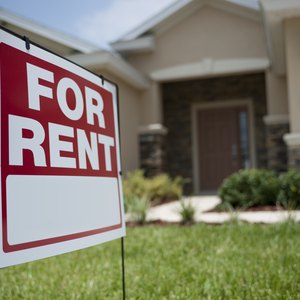
As of 2013, there were about 41 million renter households in the U.S., and renter ranks are projected to swell in the future. Though they don't own the units they live in, tenants have certain basic rights to their properties, including the right to clean, safe units. Renters also generally must follow a variety of rules set by their landlords. Landlords as well as tenants must also adhere to any applicable rental housing regulations.
Rental Housing Rules
Landlords are generally free to set rules their tenants must abide by. Depending on the state, these rental rules might be called "house rules," "apartment regulations" or "community policies." Landlords' rules for tenants must be reasonable, and they also can't illegally discriminate. A rental residence lease may or may not contain a list of rules, such as requiring parking stickers for tenants' cars, though tenants should always ask for a list when they first lease.
Occupants and Visitors
The number of approved occupants and limits on occupancy are examples of common rental housing rules imposed by landlords. Landlords can usually limit the number of occupants in the rental residences they lease to tenants, and they may require prior approval to add new occupants. Depending on the state, though, landlords may not be able to limit the number of visitors their tenants host. But rental housing tenants' visitors can't disturb other residents or violate any other lease rules.
Rental Housing Regulations
Every state and most municipalities feature a number of rental housing regulations. Many such regulations exist to ensure landlords maintain clean and safe housing for tenants. California rental housing regulations, for example, hold landlords responsible for keeping their rental properties well maintained and addressing tenants' repair requests. Other rental housing regulations require landlords to maintain electrical, heating, air conditioning and plumbing systems in accordance with applicable codes and standards.
Regulations as Statutory Authority
Rental housing regulations are statutory in nature and carry the force of law. Landlords violating rental housing regulations may expose themselves to legal sanctions, including fines or arrest in certain circumstances. In Minnesota, for instance, locking out or shutting off utilities in an attempt to evict tenants is a misdemeanor crime. Regulations also require landlords to safeguard tenants' security deposits, and they risk civil lawsuits or even criminal penalties if they don't.
References
Resources
Writer Bio
Tony Guerra served more than 20 years in the U.S. Navy. He also spent seven years as an airline operations manager. Guerra is a former realtor, real-estate salesperson, associate broker and real-estate education instructor. He holds a master's degree in management and a bachelor's degree in interdisciplinary studies.

